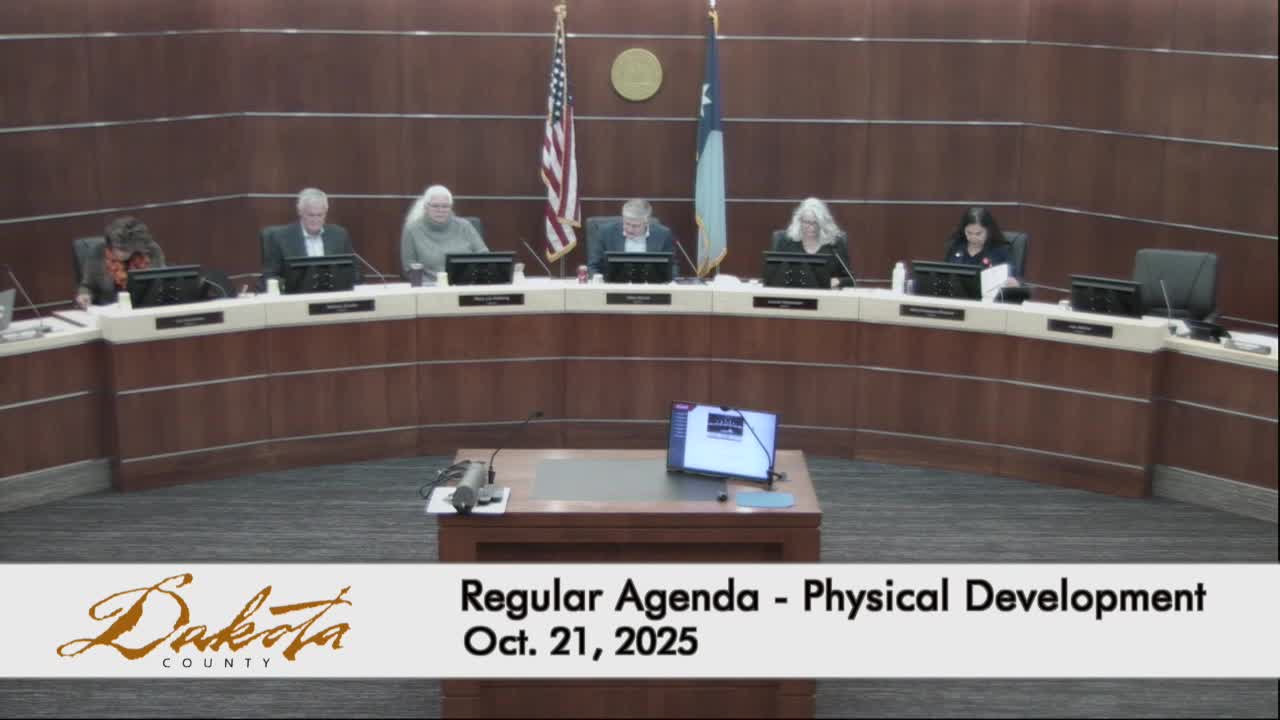Dakota County OKs joint powers agreement for enhanced street-sweeping study with Vermillion watershed
Get AI-powered insights, summaries, and transcripts
Subscribe
Summary
The county authorized a $83,350 study, funded 50/50 with the Vermillion River Watershed Joint Powers Organization, to evaluate targeted "enhanced" street sweeping to reduce pollutants and support MS4 permit compliance; consultant WSB will perform the work.
The Dakota County Board of Commissioners authorized a joint powers agreement (JPA) with the Vermillion River Watershed Joint Powers Organization to fund and participate in an enhanced street-sweeping study aimed at reducing sediment and phosphorus runoff.
Cole Johnson, water resources project supervisor in Dakota County's Environmental Resources Department, told the board enhanced sweeping goes beyond routine spring and fall debris removal by targeting high-impact areas and optimizing routes and schedules. "Enhanced street sweeping can reclaim a pound of phosphorus around $250 a pound," Johnson said, citing case studies used to explain relative cost-effectiveness compared with structural stormwater practices.
The total study cost is $83,350; Johnson said Dakota County and the Vermillion River Watershed JPO proposed a 50/50 cost share under the JPA. He identified consulting engineer WSB as the selected consultant and said other local governmental units will be included as study beneficiaries.
Johnson said the study will evaluate current sweeping practices using data and performance metrics, identify operational improvements, and support the county's obligations under its MS4 permit (municipal separate storm sewer system) by producing a final report with recommended operational changes.
Commissioners asked whether the study would address large private paved areas and construction sites. Johnson said the study focuses on areas under municipal and county control but that results can be translated by cities and other entities to inform their own practices; city and watershed partners were listed as recipients of the pre-study inventory.
A motion to authorize the physical development director to execute the joint powers agreement passed on roll call with unanimous recorded support. Staff said the study outcomes will be used for technical outreach and public education through local watershed and soil-and-water conservation networks and will inform the county's draft watershed management plan where community education is a focus.
